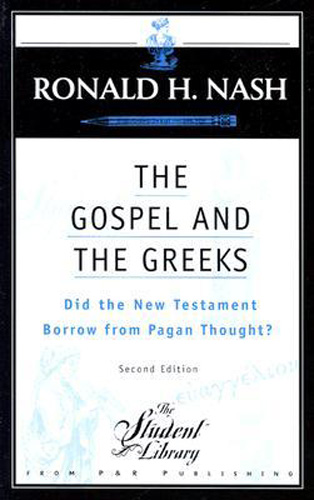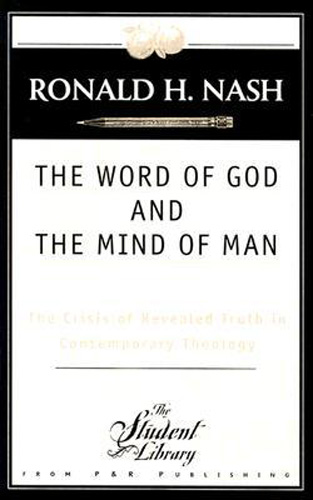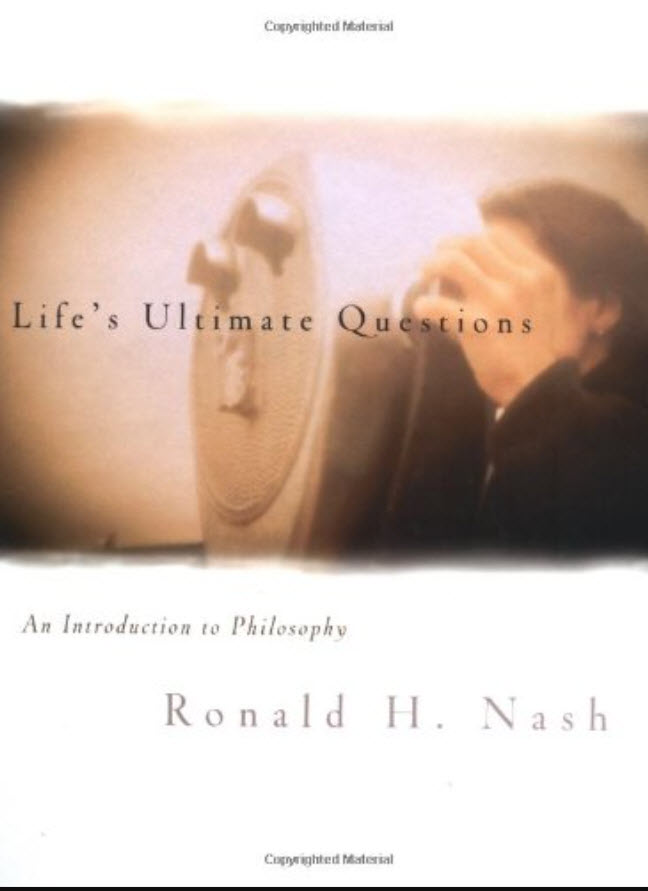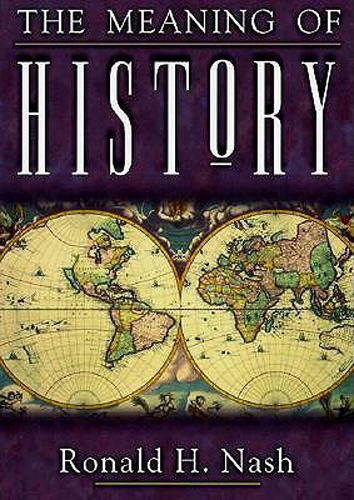History of Philosophy and Christian Thought
About This Class
In this class, you will explore the rich history of philosophy and its relationship with Christian thought. The course begins with an introduction to the definition and importance of philosophy in Christian theology. You will then delve into the evolution of philosophical thought from the Pre-Socratic era, through the Classical Greek philosophers, and into the Hellenistic period. As you progress, you will discover how early Christian thought emerged and developed during the Patristic period, with a special focus on Augustine. The class continues with an examination of medieval Christian thinkers, such as Anselm and Thomas Aquinas, and concludes with an analysis of modern philosophers like Descartes, Kant, and Kierkegaard, and their influence on contemporary Christian...
Ronald Nash

Lessons
Introduction
0% Complete- 0% Complete
Thales and Anaximander were two philosophers in the sixth century BC that lived in Miletus.
0% Complete - 0% Complete
Heraclitus and Pythagoras lived into the 5th century BC.
0% Complete - 0% Complete
Any worldview addresses the subjects of God, ultimate reality, human knowledge, ethics and human persons.
0% Complete - 0% Complete
Fundamental beliefs of a naturalistic worldview is that nothing exists outside the physical universe and that all things evolved.
0% Complete - 0% Complete
Plato was a student of Socrates and lived into the fourth century BC. He opposed hedonism, empiricism, relativism, materialism, atheism and naturalism.
0% Complete - 0% Complete
Plato described the universe as having three levels: the world of particulars, the world of forms, and the form of the good.
0% Complete - 0% Complete
Plato's view of the universe was dualistic.
0% Complete - 0% Complete
One of Plato's fundamental arguments is that the human soul is immortal.
0% Complete - 0% Complete
Evaluation of Plato's arguments and comparison of Plato's philosophy with biblical theology.
0% Complete - 0% Complete
Empiricism teaches that all human knowledge arises from sense experience. Rationalism teaches that some human knowledge does not arise from sense. experience
0% Complete - 0% Complete
Aristotle was a student of Plato and lived in the fourth century BC.
0% Complete - 0% Complete
Aristotle rejected Plato's doctrine of two worlds.
0% Complete - 0% Complete
Discussion of Aristotelian philosophy as it relates to the incarnation.
0% Complete - 0% Complete
Aristotle's philosophy as it relates to attributes of God and fundamental assumptions about psychology.
0% Complete - 0% Complete
Aristotle made a distinction between passive intellect and active intellect.
0% Complete - 0% Complete
Discussion of the strengths and weaknesses of the law of non-contradiction.
0% Complete - 0% Complete
Discussion of the nature and substance of matter.
0% Complete - 0% Complete
Hellenistic philosophy was an approach that was popular from the fourth century BC to the fifth century AD.
0% Complete - 0% Complete
Stoics were determinists who believed in living according to nature.
0% Complete - 0% Complete
Hedonism emphasized pleasure as the greatest good. "Eat, drink and be merry for tomorrow we might be dead."
0% Complete - 0% Complete
Philo's philosophy was based on a synthesis of Stoicism and Platonism.
0% Complete - 0% Complete
Implicit "Logos" Christianity is an underlying theme in the book of Hebrews.
0% Complete - 0% Complete
Plotinus lived in the third century AD and is considered the founder of Neoplatonism.
0% Complete - 0% Complete
Augustine is a Latin church father, is considered by many to be one of the most important figures in the development of Western Christianity.
0% Complete - 0% Complete
Augustine wrote Confessions as an autobiographical work to record his experience as a sinful youth and his experience becoming a follower of Christ.
0% Complete - 0% Complete
Augustine wrote to refute some heresies of the day by focusing on the concepts of faith and reason.
0% Complete - 0% Complete
Augustine writes about the problem of evil and describes evil as the absence of good.
0% Complete - 0% Complete
Augustine writes to refute Pelagianism by focusing on the biblical teaching about sin.
0% Complete - 0% Complete
Augustine writes to refute Donatism.
0% Complete - 0% Complete
The fundamental idea of skepticism is that no one can know anything. Augustine this statement contradicts itself because the skeptic is claiming that you can know that you can't know anything.
0% Complete - 0% Complete
When Augustine wrote "The City of God," he had a linear view of history.
0% Complete - 0% Complete
In Augustine's theory of knowledge, he says that eternal reason and human reason are two different levels of reason.
0% Complete - 0% Complete
Augustine was personally convinced of the importance of divine illumination.
0% Complete - 0% Complete
The intellectual background of Thomas Aquinas was influenced by the discovery of ancient manuscripts, the rise of universities, the rise of religious brotherhoods and the rise of Muslim philosophy.
0% Complete - 0% Complete
Aquinas describes faith as whatever a human can know through special revelation, and reason as whatever a human can know outside of special revelation.
0% Complete - 0% Complete
Aquinas attempts to prove God's existence.
0% Complete Aquinas describes four kinds of law as eternal, divine, natural and positive.
0% Complete- 0% Complete
The rationalists and empiricists set the stage for Kant and other philosophers of the modern era.
0% Complete - 0% Complete
Kant argued that moral requirements are based on a standard of rationality he dubbed the “Categorical Imperative."
0% Complete - 0% Complete
Kants two worlds are the phenomenal world and the noumenal world.
0% Complete - 0% Complete
Discussion of criticisms and questions about Kant's ideas.
0% Complete - 0% Complete
Similarities between Kant's ideas and postmodernism.
0% Complete - 0% Complete
The dialectic is a central idea in Hegel's philosophy.
0% Complete - 0% Complete
Ideally, Marxism begins with class struggle, then revolution, dictatorship of the proletariat, withering away of the state, and a utopian classless society.
0% Complete - 0% Complete
Discussion of four faces of Marxism.
0% Complete - 0% Complete
Nietzsche proclaimed that, "God is dead." His cure was to live life knowing there is no ultimate meaning. Kierkegaard emphasized a worldview based on true faith.
0% Complete
Class Resources
Recommended Books
The Gospel and the Greeks: Did the New Testament Borrow from Pagan Thought?
Examines contemporary claims for Christian dependence on Hellenistic philosophy, Greco-Roman mystery religions, and Gnosticism. He finds the case for dependence in the...

The Word of God and the Mind of Man
The last two centuries of Christian theology are the record of an evolving attack on the role of knowledge in the Christian faith. The purpose of this book is to challenge...

Life's Ultimate Questions: An Introduction to Philosophy
Life's Ultimate Questions is unique among introductory philosophy textbooks. By synthesizing three distinct approaches

The Meaning of History
The Meaning of History is a concise look at the meaning of the history of the world from the viewpoints of major historians and philosophers. By examining the individual...
